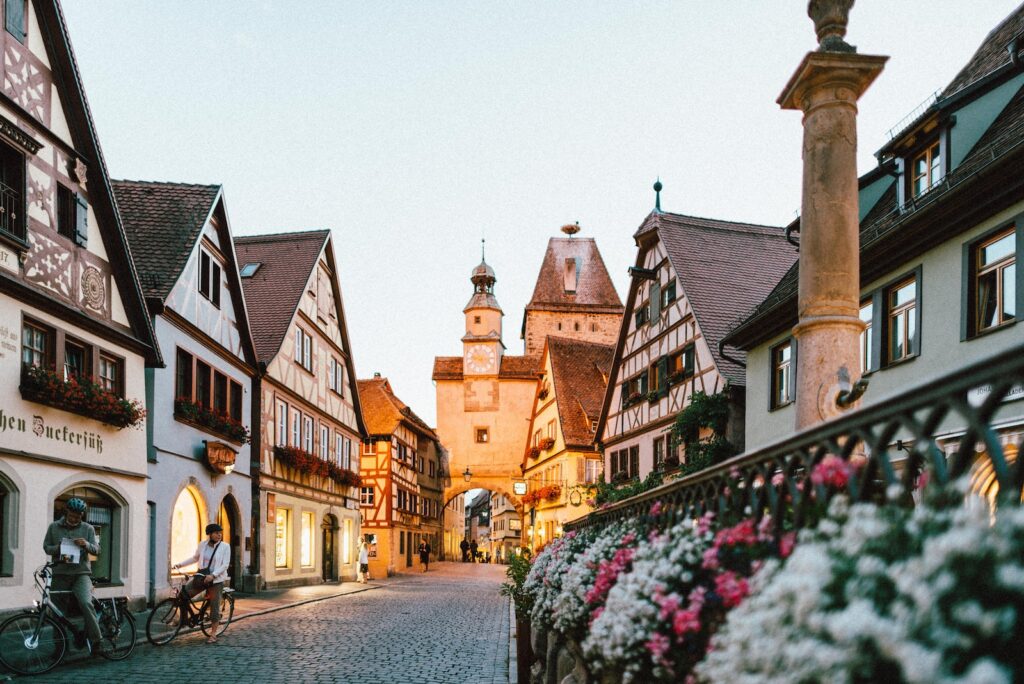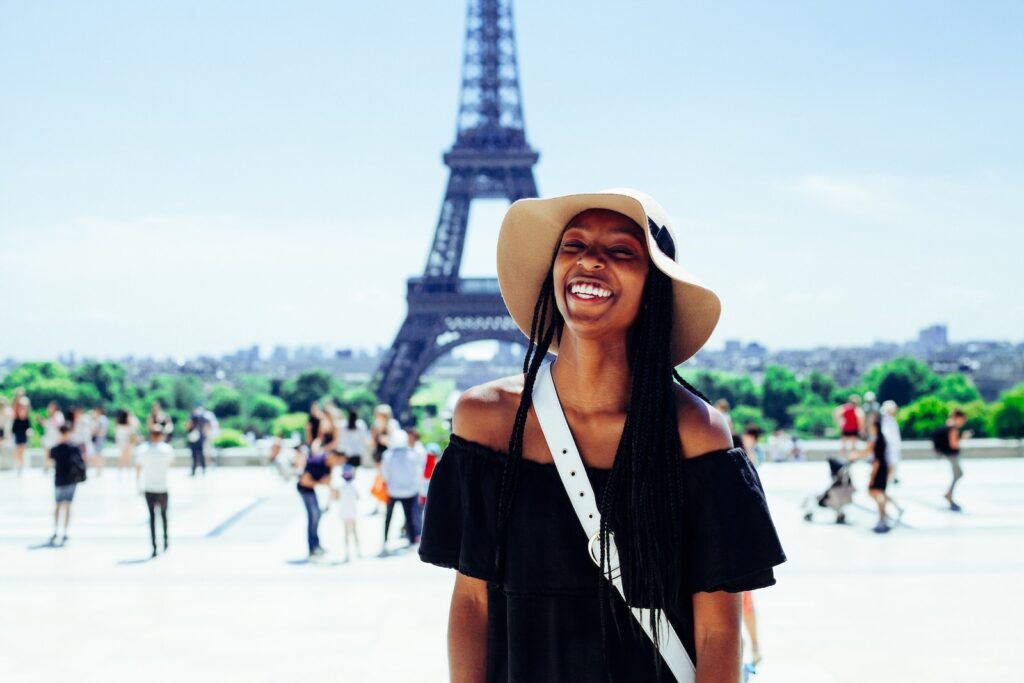Discrimination and prejudice should not be used to restrict people’s travel choices.
Every person, regardless of their race, should have the freedom to explore and experience different cultures and places around the world.
However, I can address the historical and present-day challenges of Blacks Traveling to Europe that you may face.
Historically, Europe has had a long-standing issue with racism and discrimination against Black people.
The transatlantic slave trade, which brought millions of Africans to the Americas and Europe, was a significant contributor to the development of this problem.
Black people were often portrayed as inferior and savage, perpetuating the idea that they were not equal to white Europeans.
Even after the abolition of slavery, racism, and discrimination continued to exist.
It was not until the civil rights movements of the 1960s that progress began to be made.
Beyond history, there are many reasons why a visit to Europe is mostly overhyped
It’s to a point that I believe some black people are just going because they are anxious to fit in with those who hate us.
Present-day, while Europe has made significant strides in combating racism and discrimination, it still exists in different forms.
Black travelers may still face subtle or overt discrimination, such as being followed in stores or being subjected to racial slurs.
It is essential to note that this experience is not unique to Europe, as racism and discrimination are global issues that exist in different degrees in various countries.

That being said, Black Americans should not be discouraged from visiting Europe or any other part of the world.
Traveling and experiencing different cultures can be incredibly enlightening and transformative.
Europe, with its rich history, iconic landmarks, and diverse cultures, has long been hailed as a dream destination for travelers from around the globe.
However, beneath the glitz and glamour lies a myriad of reasons why vacations in Europe are often overrated.
From exorbitant costs to over-tourism and cultural homogenization, I can easily shed light on the less-glamorous aspects of European travel.
1. Sky-High Costs:
It’s no secret that Europe can be expensive.
From accommodation to transportation, dining, and attractions, the cost of a European vacation can quickly add up, leaving travelers with a hefty bill and a dent in their wallets.
Popular tourist destinations often come with inflated prices, taking away from the overall experience and forcing tourists to compromise on their travel plans.
Blacks traveling to Europe will most likely feel that the money could have been better spent on destinations that are more welcoming.
2. Overtourism Epidemic:
Europe’s popularity as a tourist destination has resulted in over-tourism, especially in major cities like Barcelona, Venice, and Amsterdam.
The influx of tourists has placed immense pressure on local infrastructure.
This is leading to overcrowded streets, long lines at attractions, and diminishing the authentic cultural experience travelers seek.
Blacks traveling to Europe have concluded that the attractions have become too watered down.
At the same time, the attractions would not be in our favor if they were too historically accurate.

3. Commercialization of Culture:
Many European cities have transformed into tourist magnets, catering to the demands of visitors and sacrificing some of their genuine local charm in the process. Traditional establishments are replaced by tourist-oriented businesses, leading to a sense of cultural homogenization that dampens the authenticity of the travel experience.
4. Blacks traveling to Europe experience language barriers:
While English is widely spoken in many European cities, language barriers can still pose a challenge.
This happens particularly in rural areas or non-touristy locations.
Struggling to communicate can be frustrating and may hinder travelers from fully immersing themselves in the local culture.
The large black population in Europe is usually African natives who speak a European dialect unfamiliar to Americans.
Not only the language itself but you may find Black Europeans doing a stereotyped impression of Black Americans.
Many times it comes off as offensive and cringe.
Blacks traveling to Europe or any other part of the world can really do without the imitations of ourselves that you’ve seen on tv.
5. Crowded Attractions:
Visiting iconic landmarks can be a letdown
Blacks traveling to Europe usually want to see the Eiffel Tower, the Colosseum, or the Louvre Museum.
These sites may be a lifelong dream for many blacks traveling to Europe.
In reality, these landmarks often involve battling through crowds of fellow tourists to get a glimpse of these sights.
The experience can be far from the serene and awe-inspiring moment anticipated.
And the locations are usually filthy with rats roaming the streets and garbage thrown everywhere.
Just as many people regret meeting their favorite celebrities in real life, some of these attractions are better left to the imagination.

6. Shorter Travel Itineraries:
For many travelers coming from other continents, visiting Europe involves long-haul flights and significant time zone differences.
With so many sites of interest, travelers may feel compelled to pack too many destinations into a short itinerary.
This leads to rushed and exhausting vacations that leave little room for genuine exploration and relaxation.
Blacks traveling to Europe will feel like they are seeing too much and missing too much simultaneously.
Europe has many beautiful and famous sites to snap a picture of.
However, you may need more than 1 trip to see it all.
A 12+ hour trip is too exhausting to even think about right after doing it the 1st time.
7. Weather Disappointments:
European weather can be unpredictable.
Depending on the time of year and location, tourists may find themselves facing unexpected rain, extreme heat, or even snow.
Unfavorable weather conditions can dampen the vacation experience and limit outdoor activities.
Black traveling to Europe many times come home needing another vacation to a beautiful Caribbean island.
I’ve gathered a list of the best islands to visit right now for anything you’re into.
Conclusion:
While Europe undeniably offers a treasure trove of historical and cultural wonders, it is essential to approach European vacations with realistic expectations.
The hype surrounding European travel can sometimes overshadow the practical challenges and downsides that travelers may encounter.
By acknowledging and preparing for these potential pitfalls, travelers can make more informed decisions and, when done thoughtfully, still enjoy the unique and enriching experiences that Europe has to offer.
Ultimately, it’s crucial to strike a balance between popular tourist destinations and lesser-known, authentic gems to create a more fulfilling and meaningful travel experience in Europe.
It is essential to research and educate oneself on the culture, customs, and laws of the country they plan to visit.
Knowing what to expect and being prepared can make a significant difference in a traveler’s experience.
It is also vital for Black Americans to be aware of their rights and know what to do if they experience discrimination or racism while traveling.
They can seek help from local authorities or their embassy if needed.
Racism and discrimination exist in different forms globally.
It should not be a reason for Black Americans to avoid visiting Europe or any other part of the world.
Instead, blacks traveling to Europe should take the necessary steps to educate themselves, be prepared, and know their rights.
Traveling and experiencing different cultures can be a powerful tool in breaking down barriers and fostering understanding between people from different
backgrounds.
While traveling, it is not your job to be an ambassador for the respect of African Americans.
But while meeting people and being yourself in Europe you can get to know the world a little better.
Moreover, it gives them a chance to learn about the greatness of being an African American, like a King.





Add a Comment